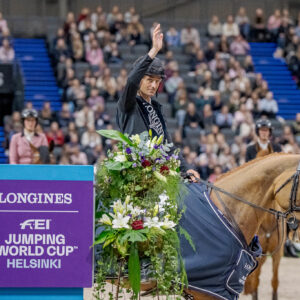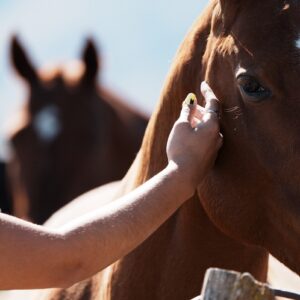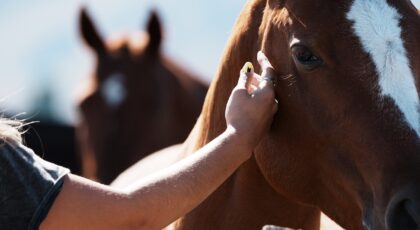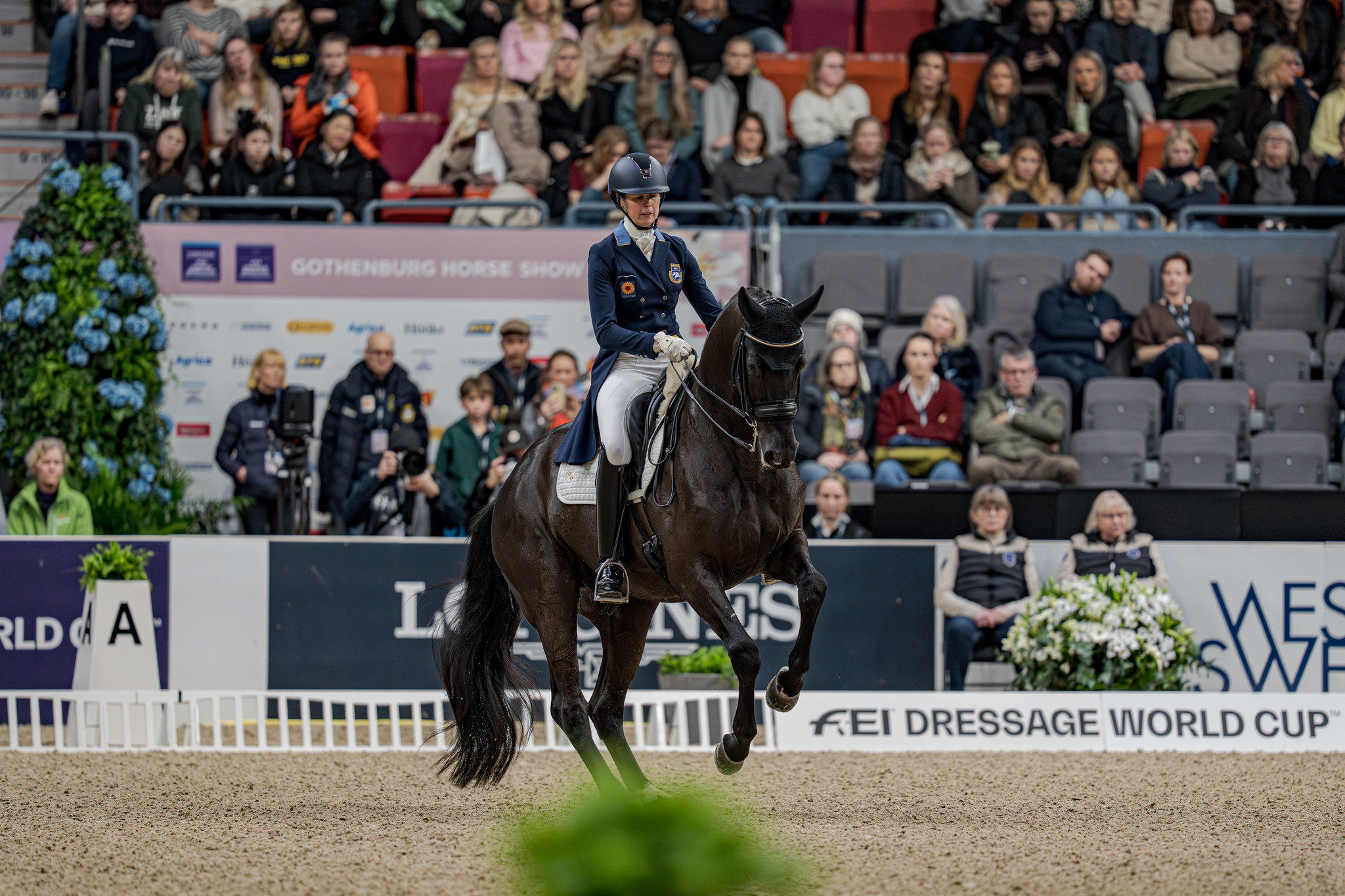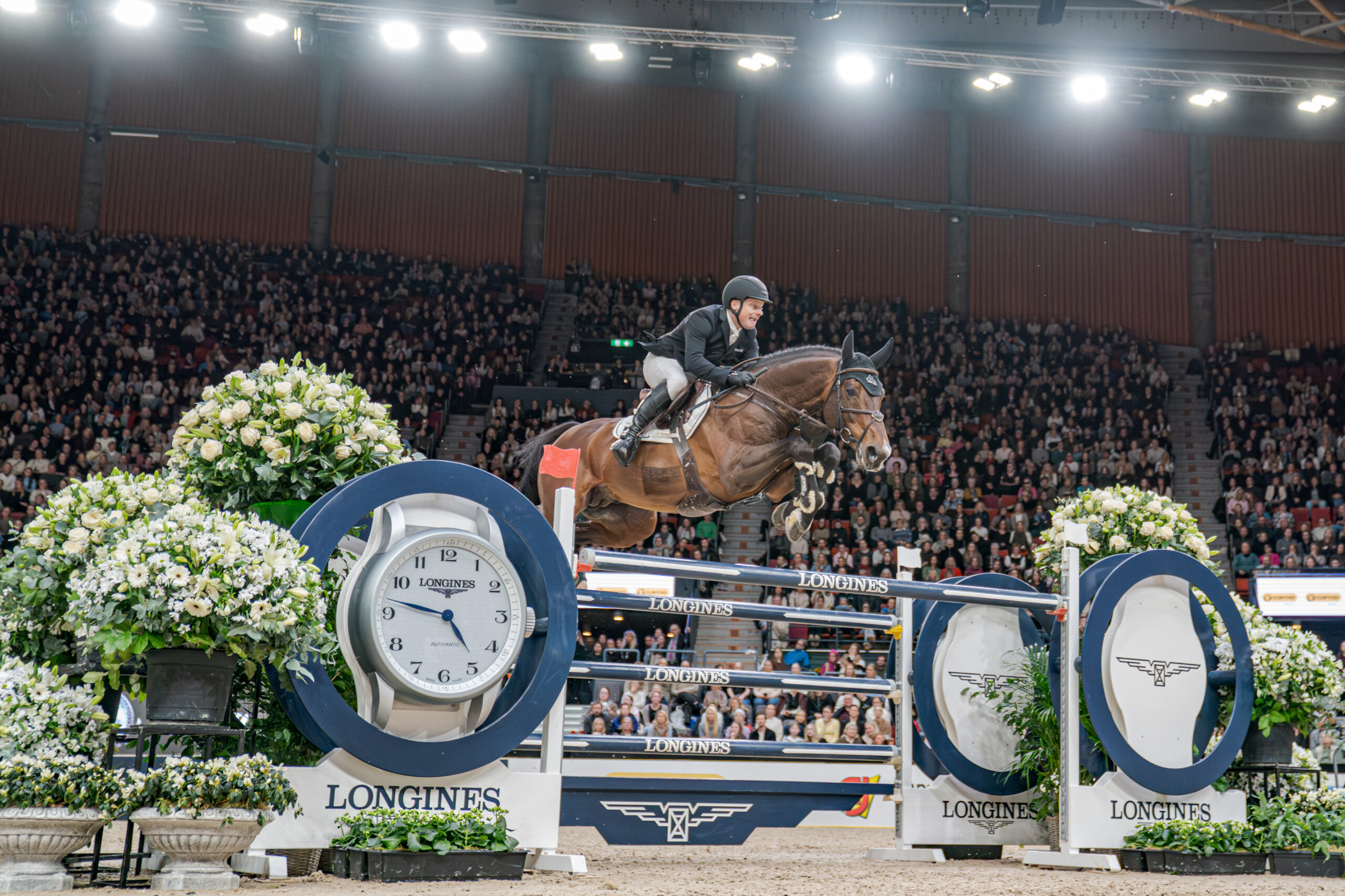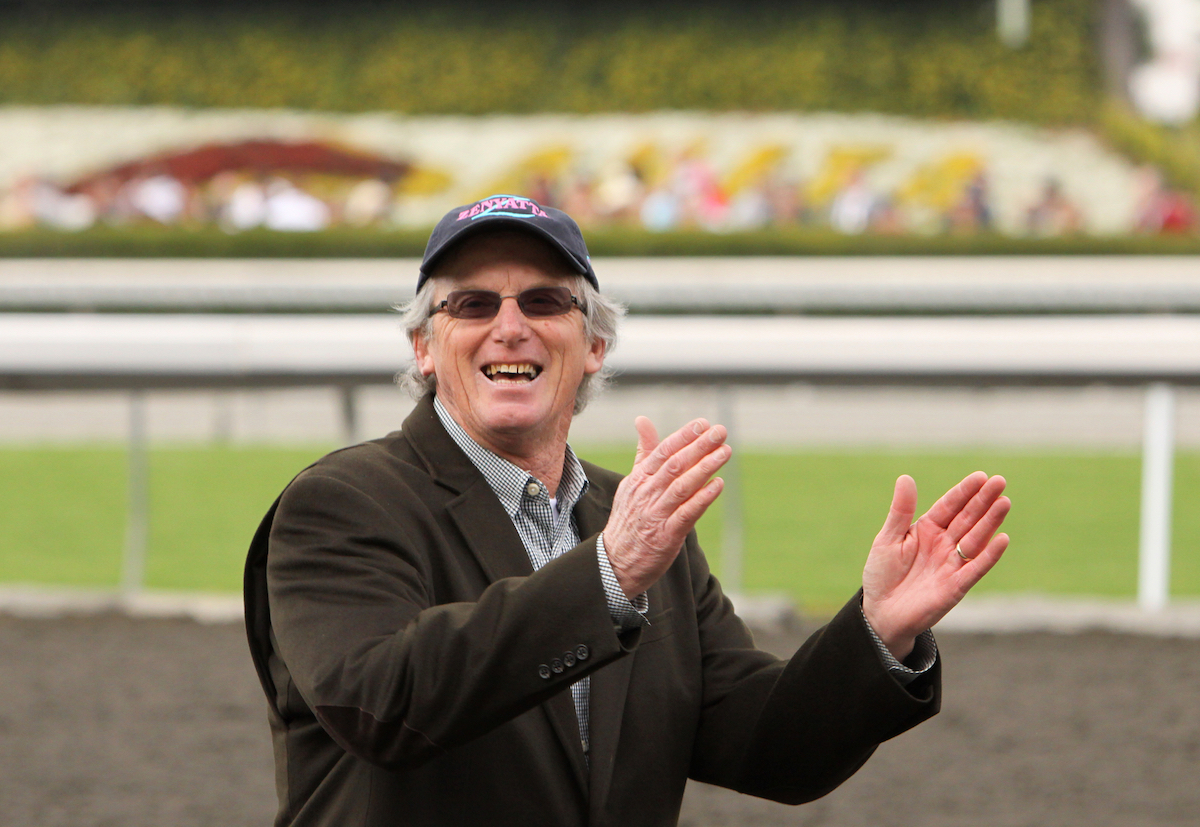DEFHR Trainer Leigha Schrader explains how horses have been her passion and her purpose—and the immeasurable ways in which the horses she has worked with have given back to her.
As a child, I didn’t ride or have any horse experience, but I was looking for a way to get involved with them.
I saw that Days End Horse Farm Rescue (DEFHR), in Woodbine, MD, welcomed volunteers of all experience levels, and you could volunteer as young as 12 without a parent. Being 12, I decided to give it a try.
From the first day, I was hooked.
After volunteering for a few months, I started taking riding lessons at a local lesson barn, while still volunteering at DEFHR from 8 a.m. to 5 p.m. on both weekend days. I was really invested and learned so much from all the hands-on time that DEFHR offered. I started lessoning more, riding two or three times a week, but never gave up my volunteering.
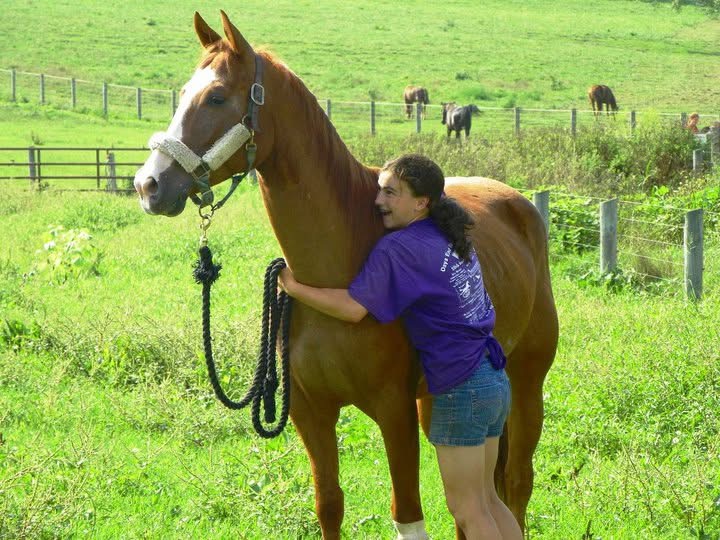
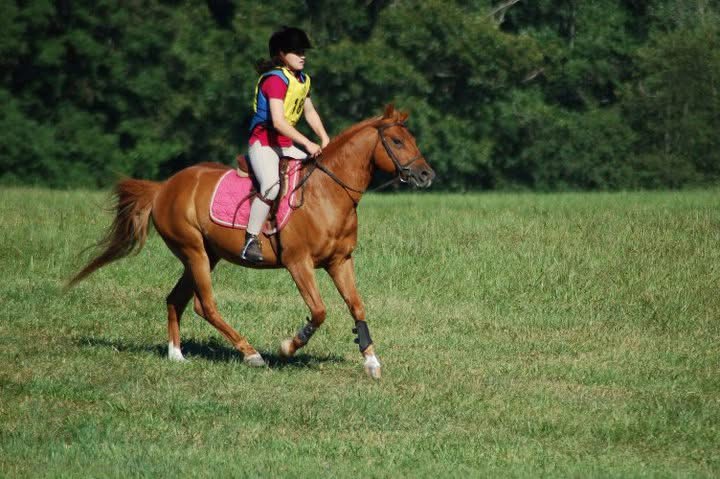
When I was a senior in high school, I started interning with DEFHR Head Trainer Sara Strauss, and we joke that I am the intern who never left. I learned more about starting horses under saddle, training, and working with green horses.
I was hired as DEFHR’s assistant trainer in 2016. I am so thankful to work for an organization that has really invested in my development. I get to work with trainers across the country while developing my own training style and passions.
Training rescue horses is unlike other training because we don’t choose the horses that come into our program, so we truly see it all. I have worked with elderly feral horses, horses that have not had good starts to their life, abuse cases—the full range.
The biggest challenges I face usually come from the pressure to make the best decisions possible for our horses. I work with a great team, and we take great pride in the responsibility of making decisions that keep horses safe for the remainder of their days. Whether that is deciding when to put a horse up for adoption or making the call for humane euthanasia, it is a big responsibility with its own set of challenges.
It is a very niche job as far as professional horse trainers go, with one of the advantages being that we never have to go looking for clients. The horses come to us—and there is always another one waiting—so it is never boring! As an all-breed rescue, we are not discipline specific. We try to give our horses a well-rounded education to best prepare them for any future job their adopter wants to pursue. Of course, if we feel that a horse would excel in a certain discipline, we can go in that direction.
Working with such a wide array of horses definitely deepens my knowledge of equine behavior. It is such a privilege to learn from horses, and each one I work with teaches me something different. As a professional trainer, it is important to continue developing my skills, and I work closely with a variety of other professionals who help me when I need it.
The Stigma-Smashing Wonder Pony Zillow
Horses constantly prove me wrong, and the rescue pony Zillow is one of those cases that breaks down stigmas, even my own.
Before arriving at DEFHR, he was locked in a stall for years, standing atop feet-high piles of his own waste, and had to be dug out of the stall.
He was still a stallion at 18, had never been started under saddle, and was extremely herd-bound and anxious. I couldn’t touch anywhere behind his ribcage without him kicking out at me. He was also lame due to extensive hoof neglect.
The first time I worked with him, he bolted and jumped a fence to get back to his friends.
I told myself I would try my best, but I thought he might be too far gone to rehabilitate, considering all the challenges he faced. Honestly, I didn’t have high hopes for Zillow’s future. I figured I would be happy if we could get him comfortable enough, both physically and mentally, to become a pasture pet.
I developed a relationship with him, and we started hitting some turning points once he began to enjoy being with me. At the time, I had just lost my liberty performance horse of five years, Vinni, and was in a place of deep mourning. He was only six and it was very unexpected.
Up until then, I had been taking care of Zillow and helping him out of a dark place, and then there was this incredible switch. Zillow started taking care of me and helping me out of my dark place. Suddenly, he began offering me behaviors and showing me that he wanted to step into a new role.
I started working him at liberty and doing some trick training, and he showed me how much he loved the job. After taking him out to a couple of performances where we showcased DEFHR and rescue horses, we decided that Zillow would join our ambassador team, meaning that he is now a permanent DEFHR resident. Together, we travel to various outreach events and shows, sharing his story and the power and potential of the rescue horse.
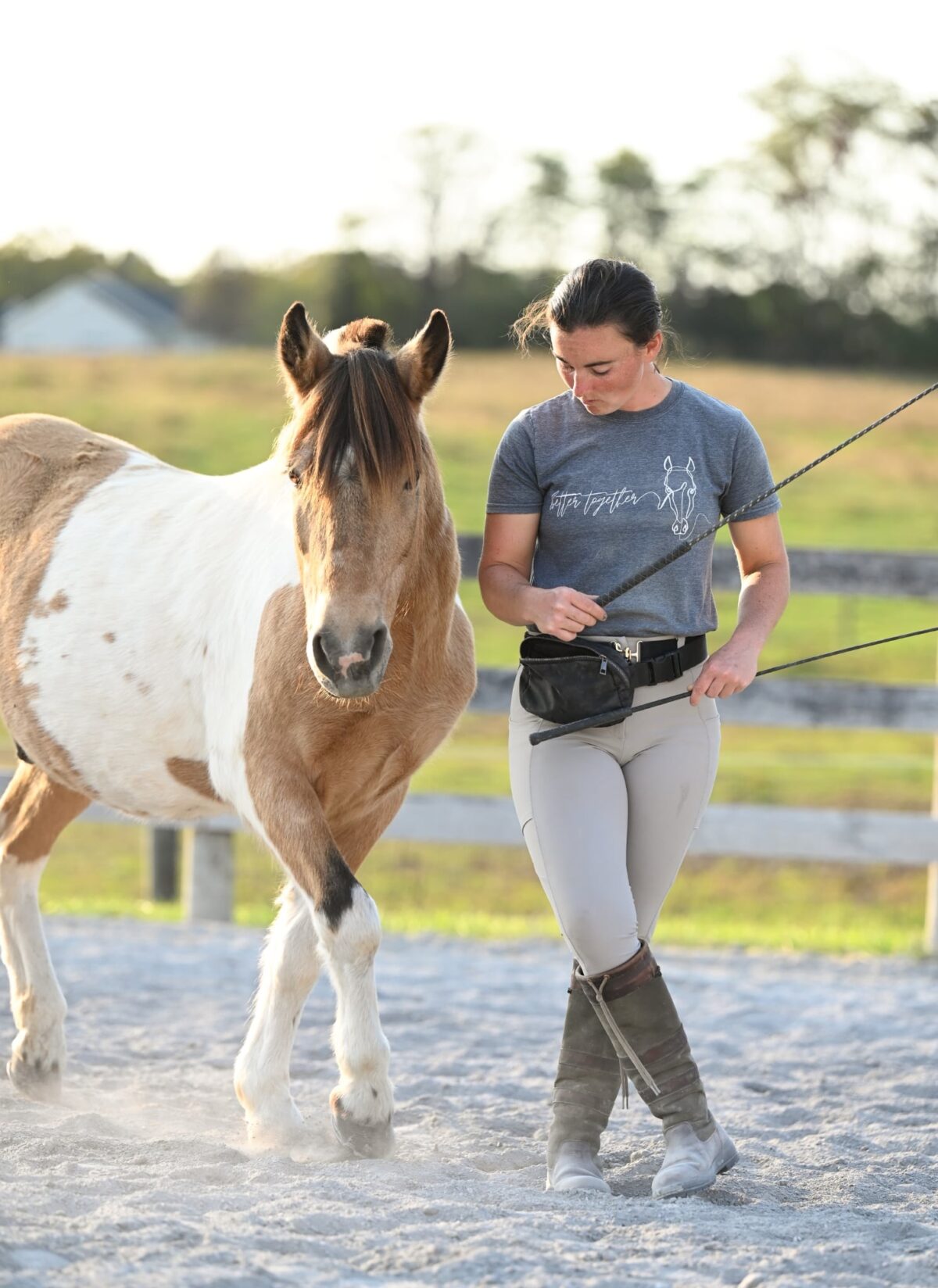
By sharing Zillow and others with the public, DEFHR is changing the narrative around rescue horses. That includes setting an example of professionalism and welfare expertise wherever we go, as well as immersing ourselves in the broader equine community, especially at the highest levels of equestrian sport.
Partnering with events like the Washington International Horse Show and the Capital Challenge Horse Show helps us connect with others in the horse industry and promote our shared goal of compassionate care for all equines.
Rescue horses have so much to offer, and we should never discount them.
I always encourage anyone searching for their next equine partner to check out rescue centers. We have had alumni go on to compete on the A-rated hunter/jumper circuit, and become prelim eventers, international mounted games ponies, rated dressage, working equitation national championship qualifiers, 50+ mile endurance competitors, Pony Club mounts, and more. Incredible horses are out there ready to find their homes, and it is always worth checking rescues to see if your next prospect is there waiting for you.
Everyone can support equine welfare; whether in hands-on ways like volunteering and adopting or educating yourself on horse welfare missions and supporting financially.
The services DEFHR provides may always be needed, but I hope that one day we’ll see every area of the horse sector putting welfare at the forefront. As DEFHR grows, I look forward to seeing our outreach expand into these new areas.
In our organization, we all have matching email signatures that read, “For the horses,” before our name and title. It is a good reminder to all of us to think about why we entered this industry. So, I’m ending this piece the same way:
For the horses,
Leigha Schrader
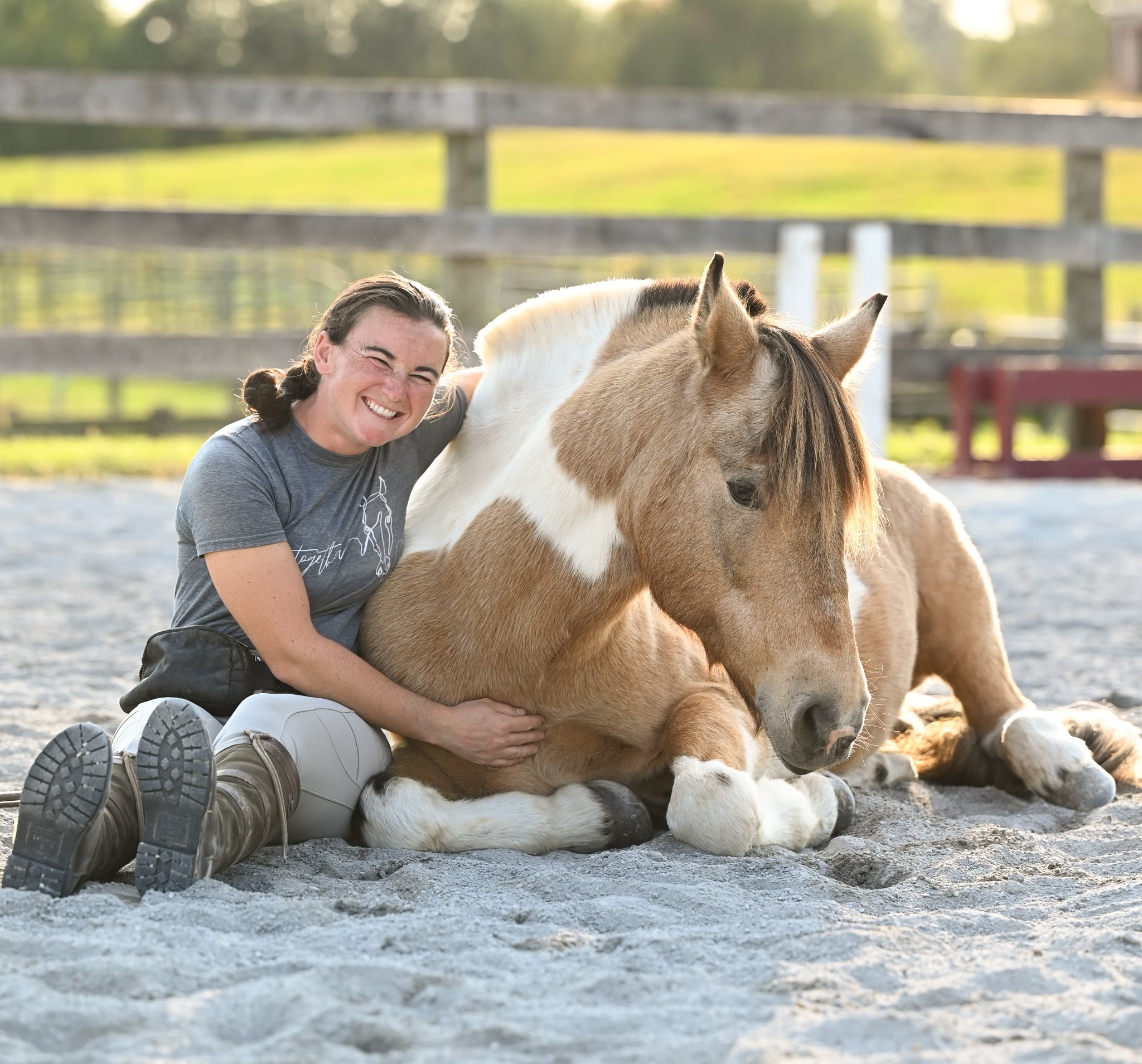

 September 2, 2025
September 2, 2025 









